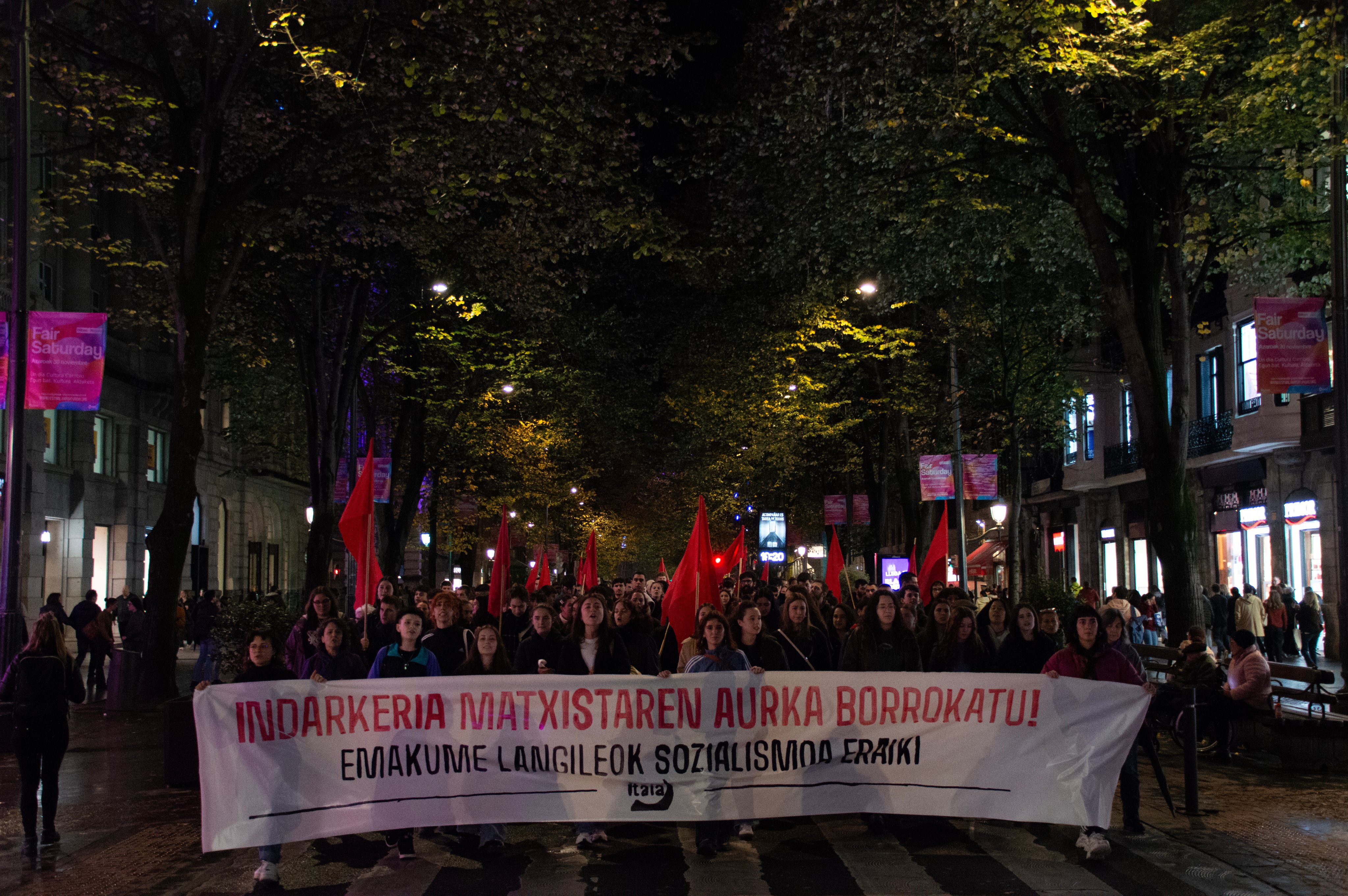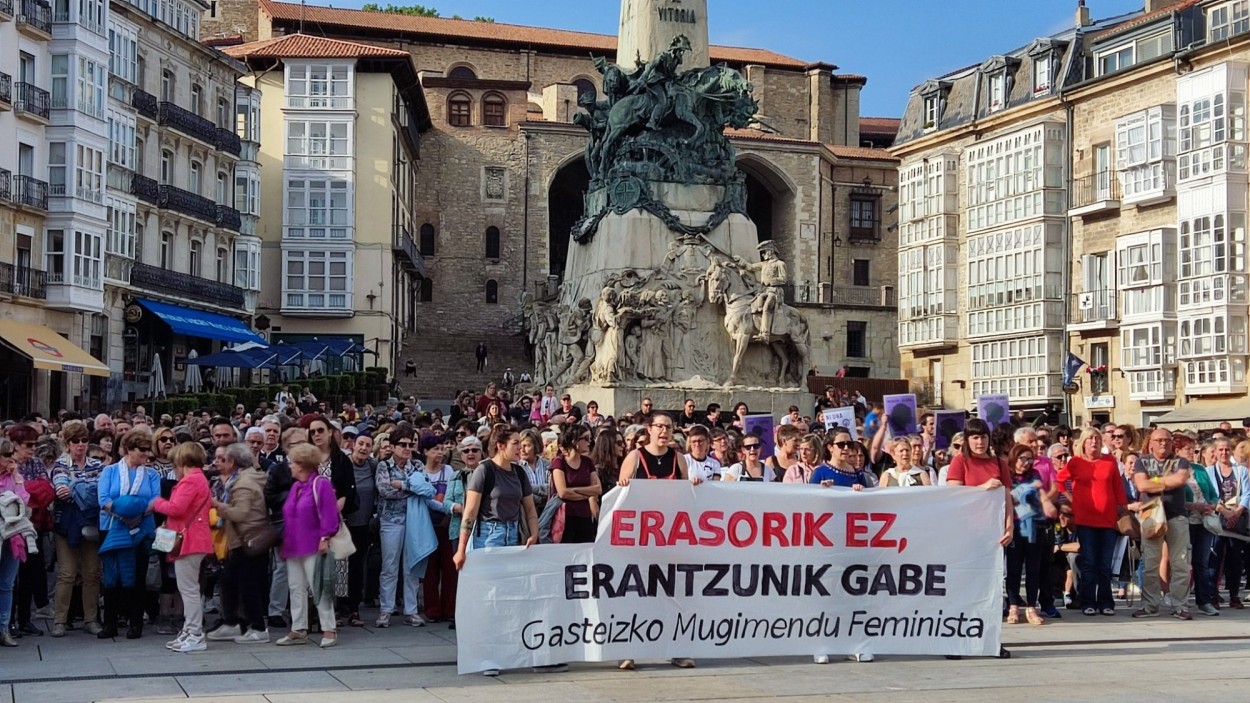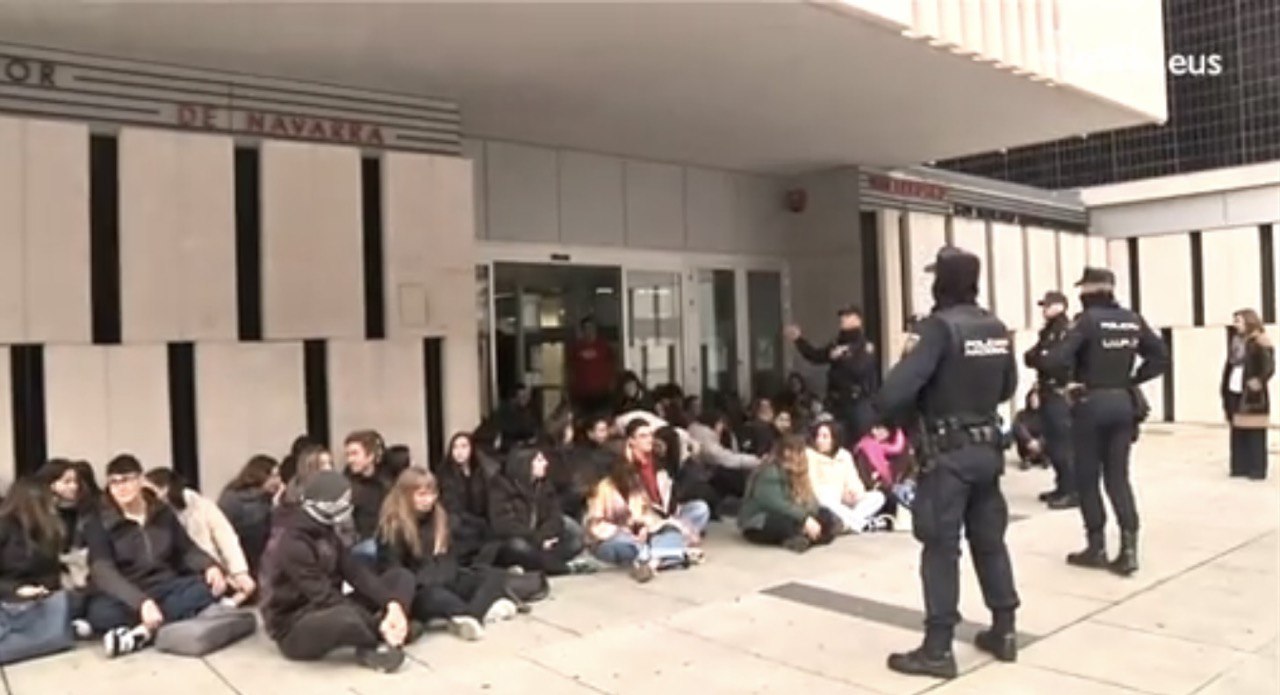“Women should not risk their lives when someone rapes them.”
- A judge from Vitoria-Gasteiz asked the woman who had come to report a sexual assault if she had “tightly closed” her legs, and this is not an isolated issue. The judicial process following the filing of the complaint is often violent. Blanca Estrella Ruiz Ungo, director of the Asociación Clara Campoamor, believes this. It is precisely they who have denounced the facts. Ruiz is clear about what happened in Vitoria-Gasteiz, about the legal proceedings and the harm that this has caused.
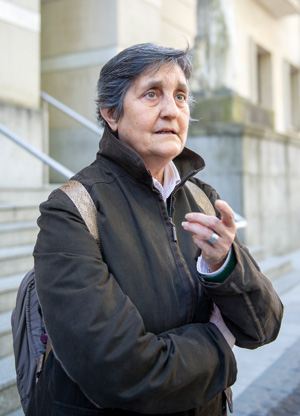
Justice seems impartial.
There's nothing missing from the law, just justice.
The judge accuses him of "not having tightly closed his legs." Is it not enough to say no?
He's not the no. The victim does not have to put his or her life at risk. What you have to count on is that she said no and that she was raped by a stranger or by a friend who was with him drinking a beer. The question of whether the judge of Vitoria closed his legs well sends the theory of no. To better understand it, I always set the example of the “elevator rapist”, who was released from prison before serving the sentence and who, upon leaving, raped 54 women in Valladolid and 11 in Salamanca and killed two. He said to the women phrases like “if you want me to kill you”, “if you face me I will kill you”, as his family told me. Everyone listened to those phrases and all raped them, but everyone else is at least alive.
“A judge wouldn’t mind making these statements, because he knows they would eat it, not for anything else.”
Resistance or survival.
Those who defended themselves were heroes, but their parents didn't want heroes, they wanted their living daughters. Women don't have to risk life when raped, I just have to say no. And that's why these kinds of sentences clearly show the lack of sensitivity and training. They don't know what it is to be raped. You would never think of it that way if you knew it.
The judge was a woman.
The other day I was asked if I would make such a statement if I were a man, and I frankly answered no. It would not happen to a judge to pronounce those statements, because he knows they would devour them, not for nothing. The statements have been made by one woman and only we have raised our voices.
Excuses have often been used to justify violations, such as the way women dress. But similar justifications are significant in the mouth of a judge.
I remember that in Catalonia there was a case called “miniskirt of Catalonia”, in which the presence of the woman dressed as a gonlover conditioned the judgment. Another case in Murcia. The judge did not condemn the aggressor, as before the rape the victim was seen kissing in a bar with his aggressor. There were two senseless judgments, and that's why we started the "No, no, no," campaign that the institutions have also used.
Can the judicial process be a second stage of violence?
Yes. They make you feel guilty, instead of asking it with a few questions and a lot of care and sensitivity, they ask you one question after another. It is unacceptable, because we have a status as a victim in which the attitude it should have with it is clearly expressed, especially in terms of mistreatment and rape. The Clara Campoamor association denounced in Vitoria-Gasteiz the disappearance of a paragraph from the text presented by the young woman.
You mentioned the questionnaires.
The interrogation must be done to the aggressor, not to the victim. The victim shows everything that happened when the complaint was filed, from there the questions should be addressed to the aggressor. In the end, the judge may have doubts, and then, in order to verify what happened, I do not think it would be wrong to ask a few questions to the victim. But once questioned the aggressor, and of course, after reading the summary. Because I think this judge in Vitoria-Gasteiz hasn't even read the complaint.
The process is only just beginning with the denunciation.
He filed the complaint with the Vitoria-Gasteiz Municipal Police, who reported in detail what happened over and over again. He was summoned to court at 11:00 a.m. and was summoned at 16:00 p.m. At that time, he stayed alone in a closed, windowless room, and fortunately, at least he waited in a room that isn't always like that. Sometimes they leave you in the hallways and you have to see the aggressor and his relatives pass over and over again.
"I think prosecutors are very important in rape cases and they're not doing their job well. The Prosecutor’s Office represents the rule of law and, therefore, the victim”
And finally, judgment.
Yes. And also, if you heard nothing more than closing your feet. It is intolerable and, as if that were not enough, they did not give him any order of withdrawal. What then served the whole process? Guarantees must be given to the victim, and such judgments cannot guarantee guarantees.
Justice seems to put the magnifying glass on the target and not on the aggressor.
As mentioned above, the questions to the victim are repeated. The aggressor’s lawyer wants to question his word and, if that were not enough, the judge often plays the same role as well. If a woman denounces the aggression in the Municipal Police, asks for help from an association, goes to the trial, spends all day in the court and has answered all the necessary questions to prove that she has been attacked, how can the judge answer that way? I don't know what training I was going to receive, but it's a pity.
You mentioned training. What are the deficiencies of the judges?
There are two main keys: training and the selection process. For professionals involved in this type of process, it should be essential to have a concern about the subject and, of course, to have the necessary training. On the other hand, I believe that prosecutors play a fundamental role in such cases and are not doing their best trabajo.La Public Prosecutor’s Office, for its part, represents the rule of law and, therefore, the victim. But in the CAPV, at least, they do not represent correctly. It is she who has to ask for measures to protect the aggressor – restraining orders, convictions… – and the victim does not have to know, she only has to tell what she has sucedido.Ejemplo of it is what happened with the monk Saholin, who was convicted for murdering two women, but was not convicted for brutally assaulting five or six women, which was the prosecution’s fault.
Gasteizen izango da manifestazio nazionala. Mugimendu feminista irailaz geroztik ari da prestatzen manifestazioaz gain egun osoko egitaraua. Mugimenduak baditu gutxienez lau arrazoi indarkeria matxistaren aurkako manifestazio nazionala prestatzeko, Zuriñe Rodriguez antolaketa taldekoak adierazi digunez.
Lehenik eta behin, 2015eko uda gogorra izan zen Euskal Herrian. Jai giroan, eta giro horretan ez zela ere, erasoak izan ziren.
Bigarrenik, mugimendu feministak indarkeriaren inguruko eztabaida soziala egiteko premia sentitzen du, indarkeria zer den hitz egiteko guneak eta garaiak aurkitzea. Jendartean ohikoa da pentsatzea emakumeen aurkako indarkeria hilketak, bortxaketak eta kolpeak direla. Indarkeriak molde asko ditu, eta horiek ezagutarazi nahi ditu mugimendu feministak.
Hirugarrenik, Rodriguezen ustez, mugimendu feminista kriminalizatzen da eraso bakoitzari erantzuten dion bakoitzean, “beti gaude jomugan”. Erasoei emandako erantzunez eztabaida sortzeko beharra sentitzen du mugimenduak, erantzuteko mila modu daudela azpimarratu nahi du, eta modu horiek gainera gaur egun erabili egiten direla. Denak dira zilegi, “eta erantzun bakoitzarekin patriarkatua ahultzen dugu”.
Bada laugarren arrazoi bat apirilaren 9an manifestazioa antolatzeko. Mugimendu feminista indartsu dago, “Gallardonen Abortuaren Legearena eta gero herri txiki, ertain eta handietan talde feministak lanean ari dira. Garai ona da, indartsu gaude eta indarkeriaren gaian aktore garrantzitsuak gara”.
Zur eta lur hartu dituzte Nafarroako Berdintasun teknikariek festa girorako enpresa zenbaitek egindako proposamenak. Edalontzia estaltzeko tapak edo eta edarian drogarik dagoen ikusteko eskumuturrekoak.
In Bilbao, I worked for five years with groups at risk of exclusion around the digital divide, especially with women. Along the way, I came across machistan violence and many other problems. In a very organic way, I began to relate to myself and to understand the work of the... [+]
On November 25, International Day against Male Violence, the Steilas Feminist Union Feminist Secretariat has published a poster: Our body is a battlefield, and all the schools in Hego Euskal Herria have received it. We wish to denounce the violence suffered by women and children... [+]












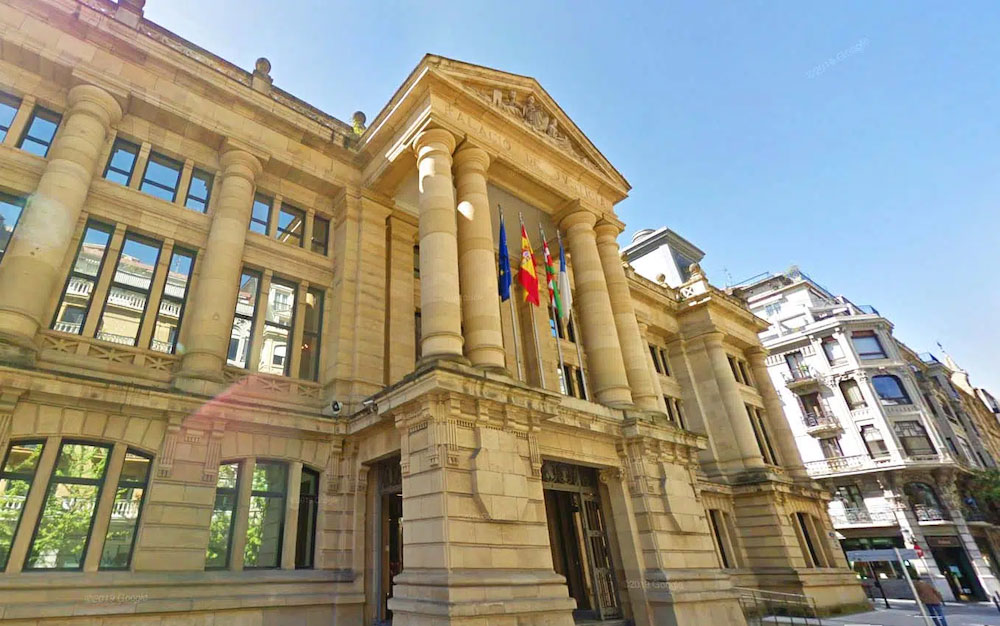
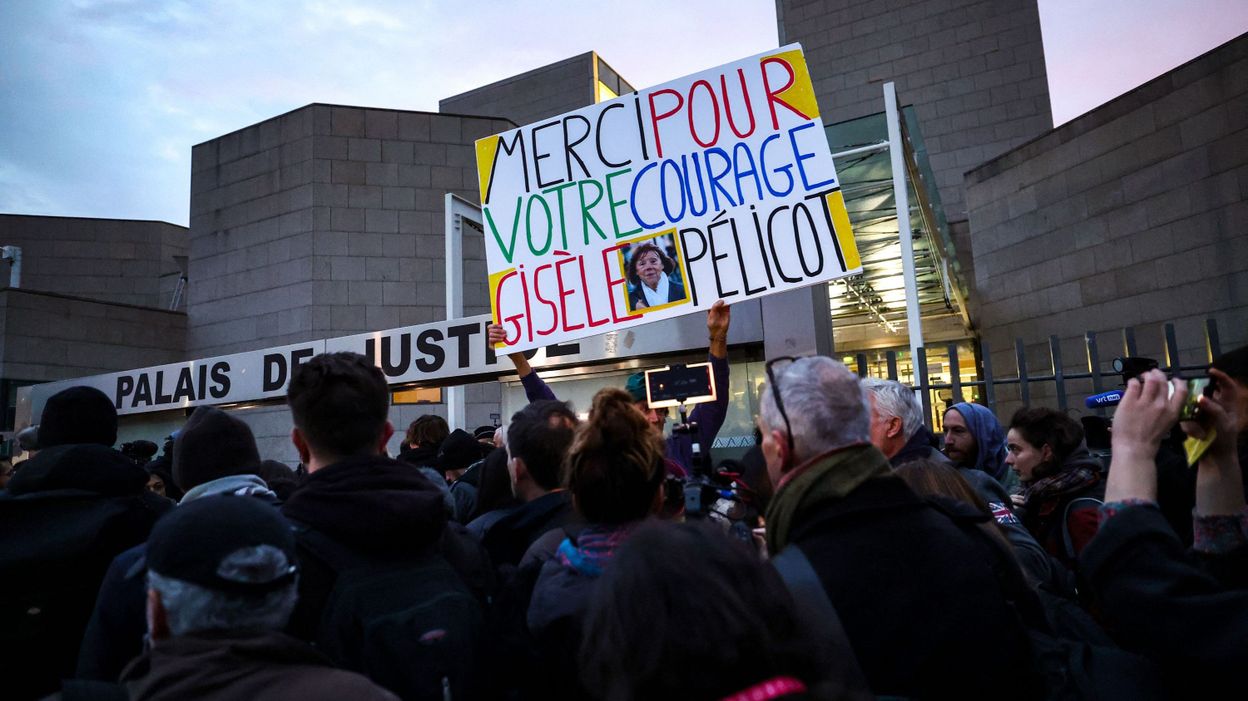

.jpg)

.jpg)

